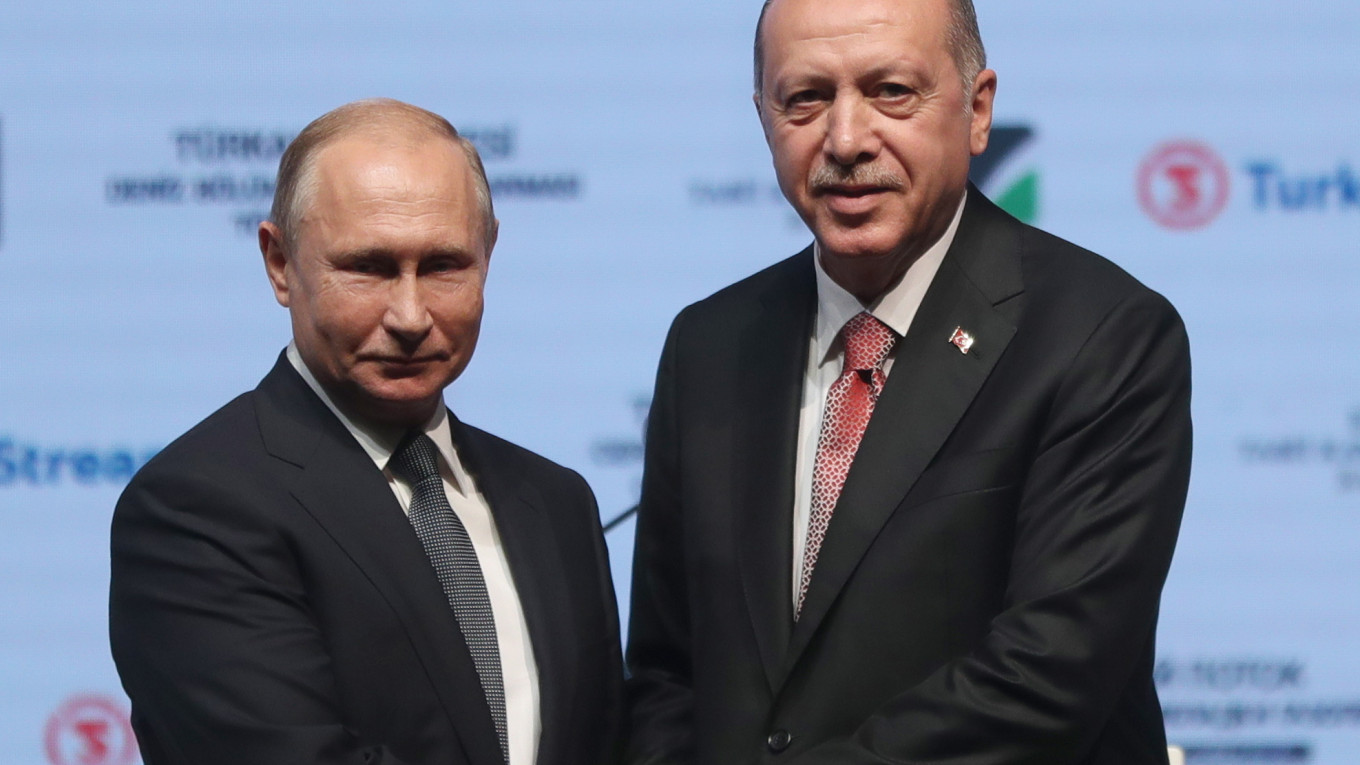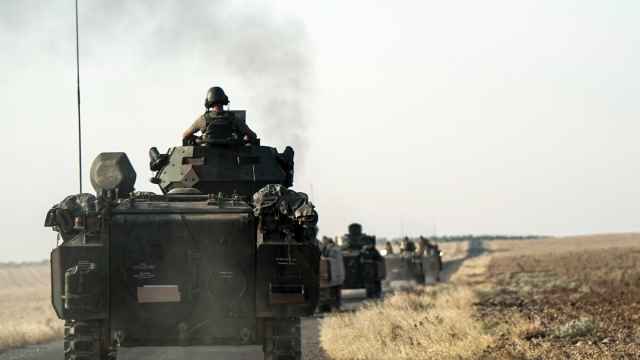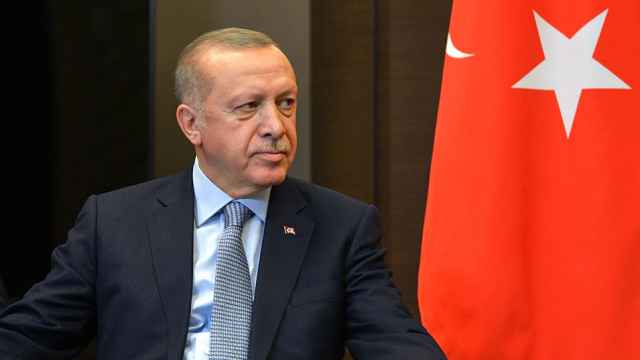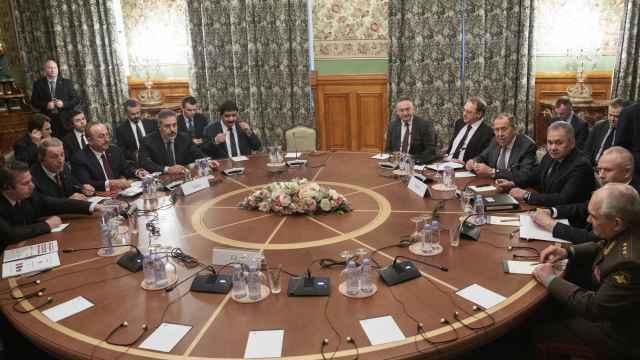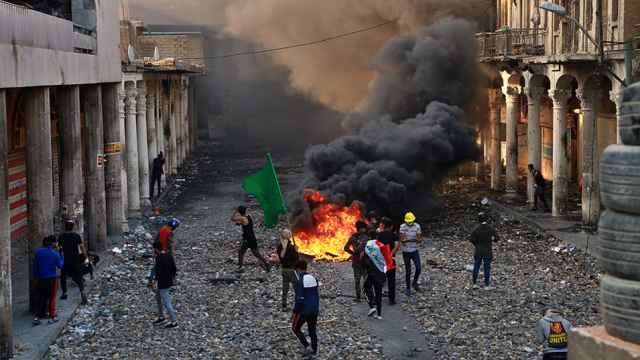Turkey and Russia will inaugurate a third natural-gas pipeline between their countries on Wednesday, deepening Turkish reliance on Russian energy even as the countries dig in on opposite sides of Libya’s escalating proxy war.
The ceremonial opening of the TurkStream pipeline by Turkish President Recep Tayyip Erdogan and his Russian counterpart Vladimir Putin underscores the tightrope Ankara has to walk as both nations expand their military footprint in the Middle East to protect interests that don’t always coincide.
The friendly visit to Istanbul this week of a Russian missile-cruiser, the Marshal Ustinov, is a sign of improving defense ties after Turkey’s purchase of a Russian S-400 air-defense system. Yet the Libyan conflict carries the risk of a direct confrontation between the countries’ forces that Erdogan is keen to avoid.
Erdogan has confirmed sending Turkish troops to train and coordinate forces loyal to the internationally recognized Libyan government, which is trying to beat back a renewed offensive on the capital, Tripoli, by militia commander Khalifa Haftar and Kremlin-linked mercenaries. He’s also said “high-ranking” Turkish soldiers will coordinate with a “combatant force” outside the Turkish military, a possible reference to Turkish-backed Syrian rebels who’ve been dispatched to Libya, and an acknowledgment that Ankara is taking a hand in directing wartime operations.
Turkey also plans to send warships to protect Tripoli and prevent the fall of Prime Minister Fayez al-Sarraj, a senior Turkish official said last week. Two Turkish frigates, TCG Goksu and TCG Gokova, were scheduled to pay a port visit to Algeria this week, beginning Tuesday. It wasn’t clear whether the vessels will stop at Tripoli on their way back.
“Turkey will continue to side with the legitimate government of Libya and maintain its military and technical support to it,” Erdogan’s spokesman, Ibrahim Kalin, said after a cabinet meeting on Tuesday.
Erdogan has denied that Turkish soldiers were going to Libya “to fight or have others fight,” but Turkey has key interests that largely depend on the survival of Sarraj’s government. Turkey recently signed a maritime deal with oil-rich Libya that serves the energy interests of both countries and aims to salvage billions of dollars of business contracts thrown into limbo by the conflict.
Erdogan wants to ease Turkey’s isolation in the energy-rich eastern Mediterranean, where European nations, Egypt and Israel have built a forum to press their claims, said Anthony Skinner, Middle East and North Africa director at risk analyst Verisk Maplecroft.
Especially, he wants to “limit the influence of bitter rival Egyptian President El-Sisi in Libya,” Skinner said. “El-Sisi’s move to topple the Muslim Brotherhood’s Mohamed Mursi back in 2013 is a source of deep resentment for the Turkish president.”
Erdogan and Putin have deepened economic cooperation as they sought to restore ties that soured after Turkey shot down a Russian warplane near its border with Syria in November 2015. The TurkStream pipeline will carry Russian gas to Turkey and possibly to Europe, helping Turkey meet its heavy energy import needs. Russia was the top exporter to Turkey in 2018, mostly supplying natural gas, according to the state statistics institute.
Russian holidaymakers who flock to Turkish beaches also contribute to tourism revenue, a significant driver of the economy.
“This strong working partnership will prevent a head-to-head clash in Libya,” said Skinner. Ankara “doesn’t intend for the Turkish military to be on the front line, while Russian private-sector mercenaries rather than the Russian army is providing support” to Haftar.
A Message from The Moscow Times:
Dear readers,
We are facing unprecedented challenges. Russia's Prosecutor General's Office has designated The Moscow Times as an "undesirable" organization, criminalizing our work and putting our staff at risk of prosecution. This follows our earlier unjust labeling as a "foreign agent."
These actions are direct attempts to silence independent journalism in Russia. The authorities claim our work "discredits the decisions of the Russian leadership." We see things differently: we strive to provide accurate, unbiased reporting on Russia.
We, the journalists of The Moscow Times, refuse to be silenced. But to continue our work, we need your help.
Your support, no matter how small, makes a world of difference. If you can, please support us monthly starting from just $2. It's quick to set up, and every contribution makes a significant impact.
By supporting The Moscow Times, you're defending open, independent journalism in the face of repression. Thank you for standing with us.
Remind me later.


